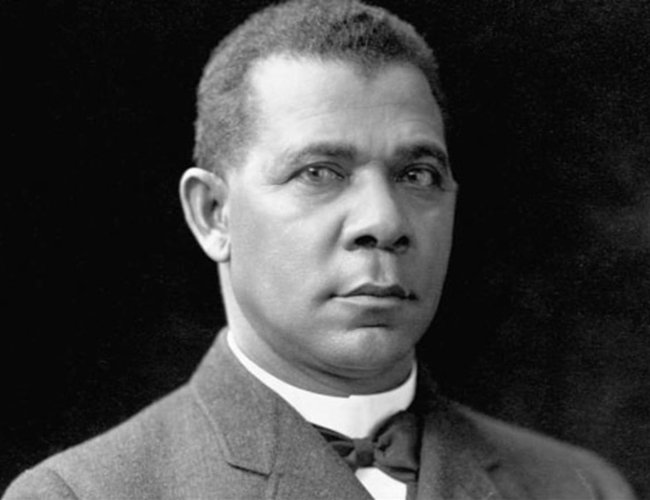
Introduction
Booker T. Washington was born a slave but became an advisor to presidents. He was born in 1856, on a small farm Virginia, USA. He advised President Theodore Roosevelt in 1905, and President William Howard Taft in 1909. Washington was an educator, civil rights leader, and promoter of black entrepreneurship and business.
Washington had a famous dispute with renowned black scholar W.E.B. DuBois. Dubois heavily criticized Washington for political accommodations with whites and pursuing his own interest. Dubois challenged Washington’s leadership, and instead emphasized protest politics for larger integration and restructuring of American society.
In my opinion, both Washington's and DuBois's strategies had strengths. DuBois pursued political rights to dismantle structural racism. Washington emphasized self-help and economic prosperity for socio-economic progress. His multi-dimensional contributions can be an appropriate strategy for empowering people from marginalized communities in Nepal.
Background
After the U.S. Civil War in the 1860s, freed Black slaves faced marginalization from slavery, genocidal dispossession, and capitalist exploitation. In the late 1800s, lynching, brutal, and inhumane attacks against black people and dispossession of their land and property pervaded the southern states in the US.
The situation of blacks in Alabama, Washington's home state, was worse than in other states. It was miserable because of industrial-scale cotton plantation slavery. Alabama was one of the first seven states to withdraw from the Union at the beginning of the American Civil War. Slaves accounted for 48% of Alabama's population, and free Blacks only 3%.
Washington faced many ups and downs during his life. In his famous autobiography, Up from Slavery, he wrote that he did not want to recall even a single instance of his childhood from the miserable slavery period.
Washington’s unique journey was full of struggles. He traces his journey from slave to an educator. He credits his success to education. Washington details his development as an educator and founder of the Tuskegee Institute in Alabama.
In 1901, there was a remarkable White House dinner President Theodore Roosevelt invited Washington to dine at the executive mansion with his family.
It was the big news in the media -- ‘the former slave black man and the sitting US President’ Some media covered it as a scandal.
The Missouri Sedalia Sentinel published on its front page a poem entitled Niggers in the White House, which ended suggesting that either the president's daughter should marry Washington or his son with one of Washington's relatives. Senator Benjamin Tillman of South Carlina said "we shall have to kill a thousand niggers to get them back in their places." All this evidence depicted the prevailing racial prejudice and stereotypes during that day.
But the ordinary dinner became an inspiring sign of big hopes in the post-Civil War American history and politics. The dinner cultivated an island of hope for all freed African Americans. The Northern white newspapers presses remarked upon Washington's accomplishments. The dinner conveyed the message that Roosevelt was everybody's president. The black community responded positively -- Washington became a hero of the Negro race.
Washington pioneered three strategies for African American emancipation: i) pragmatic education, ii) black entrepreneurship, and iii) non-violent campaign for civil rights.
Educational Philosophy
Washington articulated a unique philosophy of education: he emphasized not only classical teaching and learning, but also practical life and work.
In 1881, he established a technical institute to educate and empower recently freed African Americans with vocational education and entrepreneurship. Later it became the renowned Historically Black University called Tuskegee University.
Tuskegee provided education in technical fields. For instance, students worked on a self-supporting farm, rearing animals, and cultivating needed products. All of Washington's works were guided by his educational approach. “Education is not a thing apart from life—not a 'system,' nor a philosophy; it is direct teaching how to live and how to work,” he wrote.
Tuskegee often faced huge funding crises. It was underfunded by state and local governments. Hence, Washington found creative ways to fund Tuskegee, such as by developing a relationship with a wealthy department store owner Julius Rosenwald.
Entrepreneurship
Washington also emphasized the transformative power of Black entrepreneurship. He pioneered the establishment of the National Negro Business League and mobilized a nationwide coalition of progressive middle-class whites and leaders of philanthropic institutions. He stressed that black people improve themselves through education, industrial training, and business ownership. Washington argued that political activity alone cannot make a man free, and people must have property, industry, skill, economy, intelligence, and character.
Washington's strategies about Black entrepreneurship can be an asset for thinking about Dalit entrepreneurship and economic upliftment in Nepal. Indeed, Dalit and indigenous Nepalis have great and hidden future potentials.
Strategy
Washington led the civil rights movement in the southern US for the emancipation of black people.
Washington adopted strategies such as developing allies with progressive elites, convincing power centers for rights of black people. These multi-pronged strategies created tangible public policy influence.
Crucially, he believed that African Americans should concentrate all energies on industrial education, accumulation of wealth, and social upliftment. Washington’s strategy was for making African Americans economically prosperous and self-reliant by self-help and entrepreneurship
Washington’s emphasis on self-help for economic prosperity was not fundamentally incompatible with DuBois’s emphasis on the fight for political rights and reform. Hence, balanced, and mixed approaches and strategies are needed for the overall empowerment of the marginalized communities.
Conclusion
Washington devoted his life to African American people and is still considered as one of the most successful African Americans. He effectively translated the words from his autobiography into his life: “We all should rise, above the clouds of ignorance, narrowness, and selfishness.”
Washington’s multi-dimensional and powerful contributions to the emancipation of African Americans are relevant for marginalized people of Nepal. These contributions include equity in higher education, entrepreneurship of marginalized communities through technical and vocational education and training. The multi-pronged strategies and interventions by developing with progressive allies would be instrumental for strategic influence on public policy and the legal system in Nepal.
Through tactful and great efforts of mobilizing privileged whites, developing allies and alliances, and exploiting their networks, Washington was able to make benefits for disadvantaged communities. Washington demonstrated exemplary ways of empowering his people despite adverse conditions. He proved his statement that “Excellence is to do a common thing in an uncommon way.”
[1]Dr. Purna Bahadur Nepali is Associate Professor, and Program Director, Master of Public Policy and Management (MPPM), Kathmandu University School of Management (KU SOM), Balkumari, Lalitpur. Dr. Nepali is a Research Fellow, Harvard Kennedy School and Hutchins Center, Harvard University, the US where he is undertaking his research on the Political Economy of Inclusive Agrarian Transformation: Comparative Analysis of the Race-Caste of US and Nepal/South-Asia. He has recently completed his Fulbright Visiting Research Fellowship (2017-18) in Global Development and Sustainability at Heller School for Social Policy and Management, Brandeis University, USA. His research was on Reorienting Political Economy of Agrarian Transformations, focusing on marginalized communities in Nepal.

















